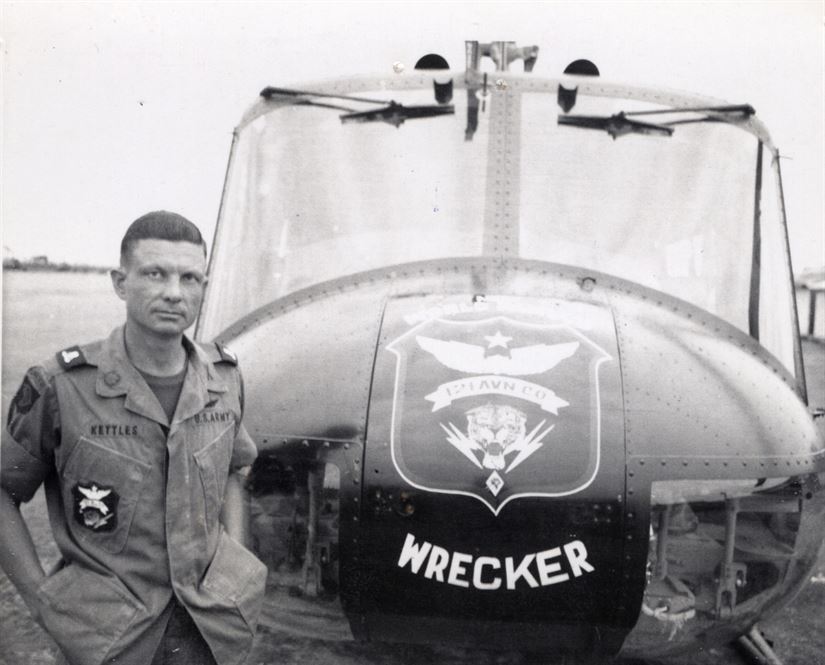Retired Army Lieutenant Colonel Charles Kettles will be awarded the Medal of Honor in a July 18 White House ceremony to a daring UH-1D Huey helicopter pilot who displayed extraordinary heroism during the Vietnam War.
Lieutenant Colonel Kettles is credited with saving some 44 lives on May 15, 1967, while serving as a helicopter commander in the 176th Aviation Company, 14th Combat Aviation Battalion, Americal Division, near Duc Pho in Vietnam’s central highlands.
Early that morning, his platoon had dropped about 80 soldiers in a river valley, but the troops were ambushed and surrounded very quickly. Kettles and his fellow pilots made several trips back and forth, bringing reinforcements and evacuating the wounded, but by afternoon, it was clear that the situation was hopeless. Only 44 troops remained, facing what Kettles estimates was a battalion-sized force.
Although the company’s helicopters were so shot up that they had to call in reinforcements from another unit for the extraction, they managed to get the soldiers aboard and take off under heavy fire.
Returning for Soldiers Left Behind
When they were airborne, Kettles learned eight men had been left behind on the ground. With one of the rescued soldiers on board in addition to his crew of four, Kettles immediately turned his unarmed Huey around and headed back to the landing zone. He had surprise on his side, but fire from the ground — mostly small arms and mortars — was withering and ripped the windshield apart.
The eight soldiers dove into the helicopter, but there was another problem: it was now about three men, or 600 pounds, too heavy. “I didn’t know if we were going to get out of there,” Kettles remembered, “but I was just going to give it my best try.”
After his copilot couldn’t manage the takeoff, Kettles took over, repeatedly adjusting the revolutions per minute until they finally lurched back to Duc Pho.
That’s the bottom line, Kettles said: those soldiers went home to their families. No medal can compare with that.
“The rest of it is rather immaterial, frankly,” he said, quick to give credit to the other 73 pilots and crewmembers that flew missions that day.
The Medal of Honor is an upgrade for Kettles. He initially received the Distinguished Service Cross, the nation’s second-highest award for valor, for his actions.
Already have an account? Sign In
Two ways to continue to read this article.
Subscribe
$1.99
every 4 weeks
- Unlimited access to all articles
- Support independent journalism
- Ad-free reading experience
Subscribe Now
Recurring Monthly. Cancel Anytime.
He also received the Distinguished Flying Cross for heroism the day before — May 14, 1967 — and he earned 27 air medals while flying more than 600 missions during two tours in Vietnam.
Kettles lives in Ypsilanti, Michigan, with his wife Ann.
Featured Content: DoD
Featured Image – Then-Army Maj. Charles Kettles stands in front of a 121st Aviation Company UH-1H Huey helicopter during his second tour of duty in Vietnam in 1969. For heroic actions in May 1967 during his first tour in Vietnam, Kettles will receive the Medal of Honor in a White House ceremony July 18, 2016. –DoD










COMMENTS